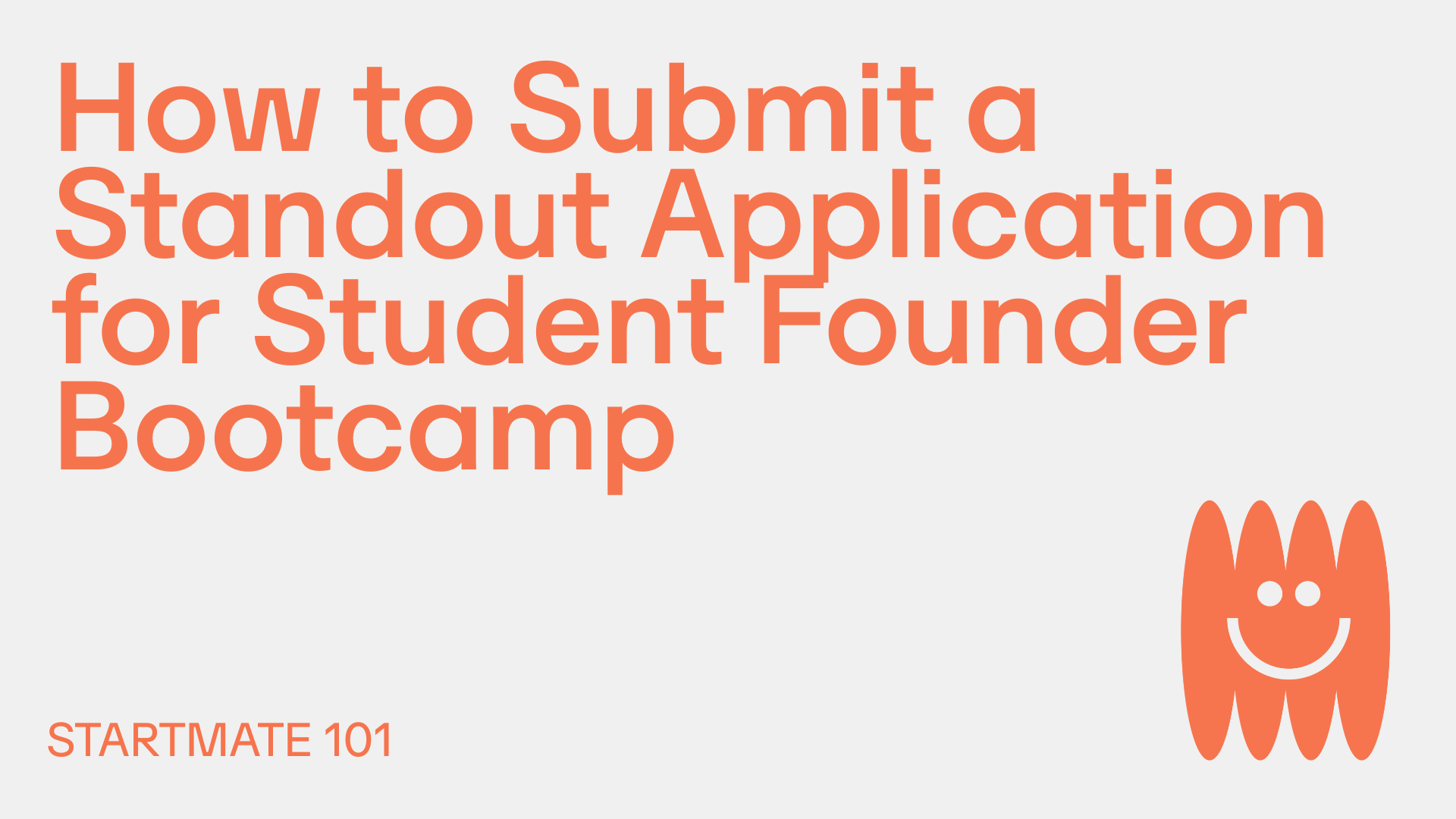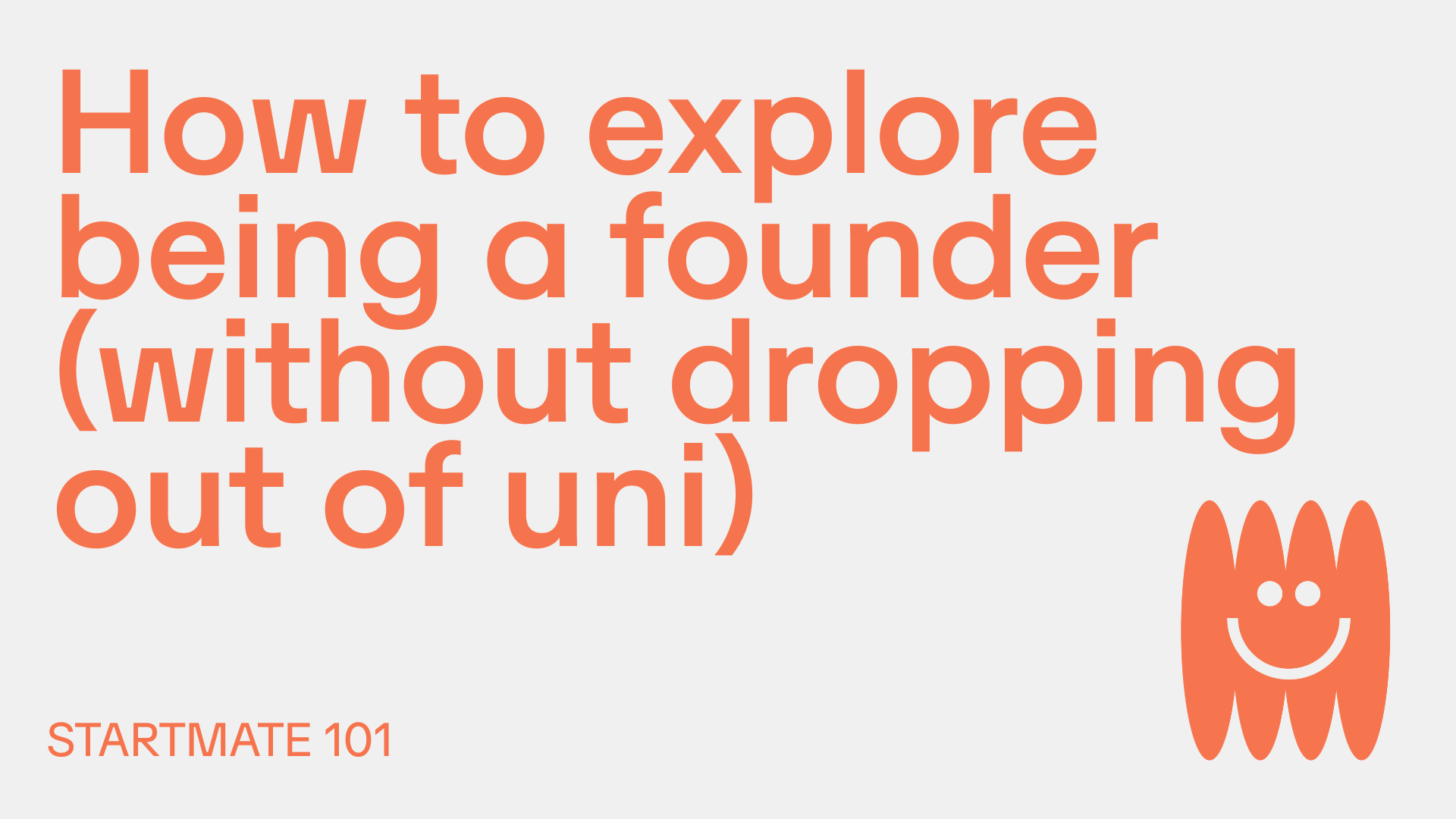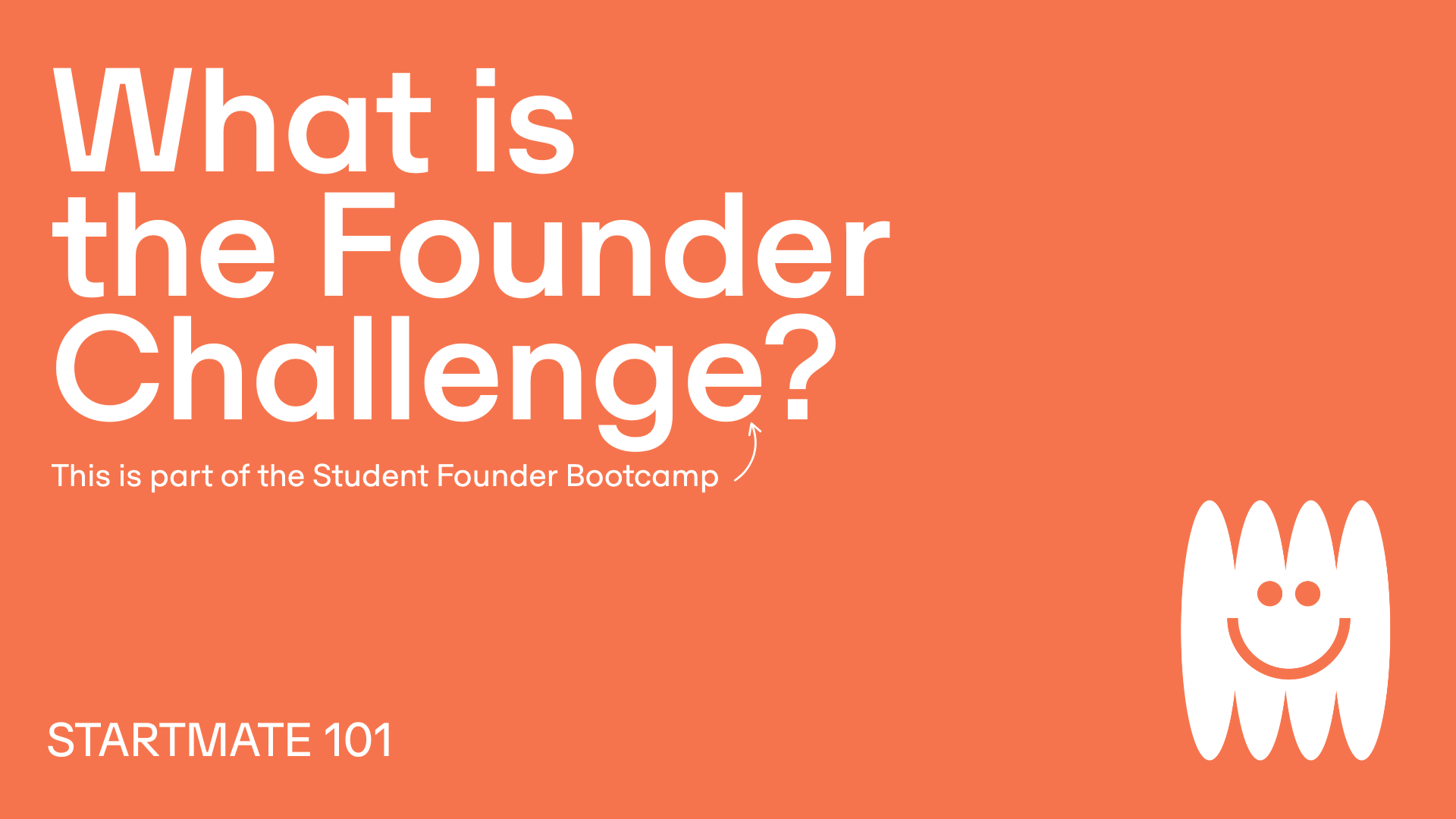What the hell is networking? Throughout university it's been harped on about as something you should do, but I never actually understood what it meant.
The clouds have parted somewhat after attending a session, hosted by Sophia Witherington, as part of the Startmate Student Fellowship. In the spirit of writing things down, this article is a summary of my learnings from this session, including what networking is and how to craft a good cold email.
What is networking really?
Networking. A sleazy word which brings to mind sending LinkedIn requests to 'connect' and having conversations with people at networking events because you want something from them. All in all, not a great image.
However it was this quote by Sophia that shifted my perspective completely:
"Your success at building a network is founded on one very important mindset: that you’re doing it based on your desire to know, appreciate and help other people.”
Wait, appreciating and helping other people? I was confused at first too. Aren't I reaching out for them to help me, and not the other way around?
Here's the kicker. What you want out of the relationship comes as a byproduct of the above, not from a purely a one-sided talk about how they can help you.
As an example, say there's a startup you really love and you reach out to the founder for a chat because you want to learn how you can help. If you come in with the mindset of ‘how I can help them?’, the conversation will naturally lead to the topic of working there.
Some of the questions would be along these lines:
- 'How did you start working on this idea?'
- 'What problems are you facing at the moment?'
- 'What do you enjoy about working here?'
This achieves two things.
- A better understanding of whether you want to work there. Those questions will inform you about the culture of the company, what it's like working there.
- A better understanding of where you can fit in at the company. The key question here is learning about the gaps or problems the startup is facing. Once you know these, you can position yourself as someone who can help address those gaps.
Networking seems selfish
I still have trouble with the idea of asking someone for help. Networking can feel so one-sided because it's all about you, right? And the worst thing is they know that you want something out of them.
It may not feel like it, but these interactions are a two-way street, where both people are getting something out of it.
In the context of finding a job and talking to a founder, they're benefiting as you're helping them by helping solve problems in their business.
When it's more so about chatting with someone to better understand what's out there in the job landscape (these are formally called informational interviews), it's usually out of altruistic reasons. Chances are, they've benefitted from reaching out and having someone help them when they needed it, or that they've been in your shoes before and know what you're going through.
How to write cold emails
So you've identified the people you want to reach out to — now comes making the ask.
There are two main points to keep in mind when writing the email.
First, be clear on why you're reaching out to them for help. Why are they uniquely positioned to help you? Or why are they, out of all the people out there, the right person to ask?
Say, for example, you want to break into product management as a fresh graduate and you reach out to someone who is in that role. There are probably hundreds of other people who are product managers you could've reached out to. So, if you are reaching out to someone, be clear on why you're reaching out to them over everyone else.
It may be that they only graduated a few years before you, so would know the position you're at, or that, like you, they did a similar degree and also had no experience in product management.
And second, be clear on how they can help you. This can be done by outlining in the email the questions or discussion points.
Doing this allows the person you're emailing to decide if they can answer those questions, and if not, whether there's someone they know who is better suited. With this approach, you’re saving time for everyone involved if it turns out that mid-call, they can't help you.
Here are a few other best practices when writing these emails.
- Have the key ask at the start — this makes it easy for the other person to read. Otherwise, they might have no idea what the email is about until the very last sentence.
- Have a CTA at the end. This way the person knows what to do with the email.
To put it all together, here's the skeleton of a cold email you could use...
Hi, X
[Who are you?]
I'm a recent finance graduate with a passion for venture capital and am looking to break into the field.
(Context: how did you find them? Why are they the right person to help?)
Enjoyed hearing you speak about your journey on the X podcast and noticed you had a similar path. I would love to find a time to talk about how you broke into X firm as a graduate the steps you took to get there.
[Be clear on how they can help.]
My questions for you are:
- X
- X
- X
[CTA at the end] If you or someone in your team is open to chat, I would love to find 30 minutes over the next couple of weeks.
Thanks,
[Name]








